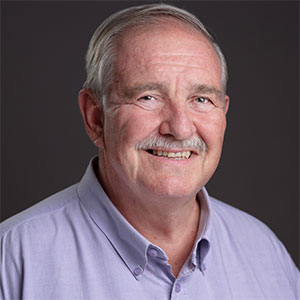“Our recent neuroimaging studies of depressed patients recovering after psilocybin treatment reveals that the increased connectivity seen during the trip persists for weeks afterwards and is associated with increased flexibility of brain function, an outcome not seen with traditional antidepressant treatments.”
International Policies for Psychedelics.
“Some countries notably Switzerland and more recently Canada have allowed psychedelics on a named-patient basis for compassionate use especially in relation to treatment-resistant patients and end of life anxiety/depression.”
Transcript Abstract
Most countries banned LSD and related psychedelics such as psilocybin and DMT as signatories to the 1971 UN Convention on Narcotic Drugs. Some omitted rarer variants e.g. Ireland did not ban 5-MEO-DMT possibly through ignorance or lack of concern over their misuse. The Netherlands banned magic mushrooms but not the truffles and so these continued to be cultivated and sold and have led to a large business of “wellness retreats”. The UK allowed magic mushrooms [though not purified psilocybin] until 2005. Since the 1970s several Latam countries such a Mexico Peru and Brazil have allowed native psychedelic plants to be used legally as part of traditional [and in some cases modified western religious] cultural activities. The USA affords mescaline the same license for Native American religious purposes. Some countries notably Switzerland and more recently Canada have allowed psychedelics on a named-patient basis for compassionate use especially in relation to treatment-resistant patients and end of life anxiety/depression. In other countries groups, such as Drug Science in the UK, are campaigning for similar exemptions. In some countries especially Africa ibogaine is legal and its use therapeutically appears to be allowed in several countries both in the Latam Americas and South East Asia. Intriguingly it is an approved medicine for opioid dependence treatment in New Zealand a decision made on clinical consensus rather than RCTs, which could become a model for other psychedelics. Currently no western countries have legalised psychedelics but they are in effect decriminalised in Portugal and less formally in Spain. More recently several US towns e.g. Oakland and Denver allow magic mushrooms, as does Oregon state which is attempting to set up a state-wide psilocybin-psychotherapy service by 2024. However in most western countries its seems likely that the entry of psychedelics into psychiatric medicine will require conventional RCTs with comparisons against both placebo and active comparators. Whether this approach will prove successful is open to question given the failure of medical cannabis to overcome these barriers and we may see psychedelic therapy being allowed in many US states without federal approvals. Canada may well adopt the same approach. This will leave psychedelics in a similar position to that of medical cannabis with essentially private prescriptions not covered by insurance until a much large body of naturalistic real world evidence medical data is collected.
How Psychedelics Work.
“Our recent neuroimaging studies of depressed patients recovering after psilocybin treatment reveals that the increased connectivity seen during the trip persists for weeks afterwards and is associated with increased flexibility of brain function, an outcome not seen with traditional antidepressant treatments.”
Transcript Abstract
There is now extensive evidence that serotonin 5-HT2A receptor acting psychedelic drugs such as psilocybin LSD and DMT work by producing a profound disruption of ongoing oscillatory activity in the brain. This disrupts the segregation of key brain networks and leads to increased crosstalk between them. In this state of increased disorder [entropy] abnormal thinking processes such as rumination that underpin disorders such as depression and addiction become temporally disrupted allowing the patient to “escape” from them. Also the increased connectivity allows the person to discover new insights in their past and develop new thoughts about the future which can endure well after the trip is over. This prolonged benefit can be accentuated by psychotherapy and also by the serotonin receptor stimulation that in rodent models can be shown to increase dendrite growth and synaptogenesis. Our recent neuroimaging studies of depressed patients recovering after psilocybin treatment reveals that the increased connectivity seen during the trip persists for weeks afterwards and is associated with increased flexibility of brain function, an outcome not seen with traditional antidepressant treatments. We think this increased flexibility may explain the experiences of increased connectedness with the world that patients often report and the improved wellbeing scores they register.

